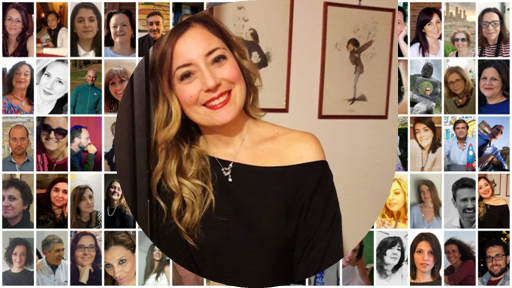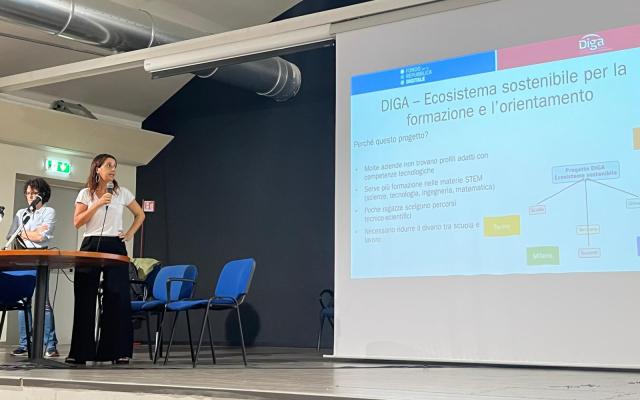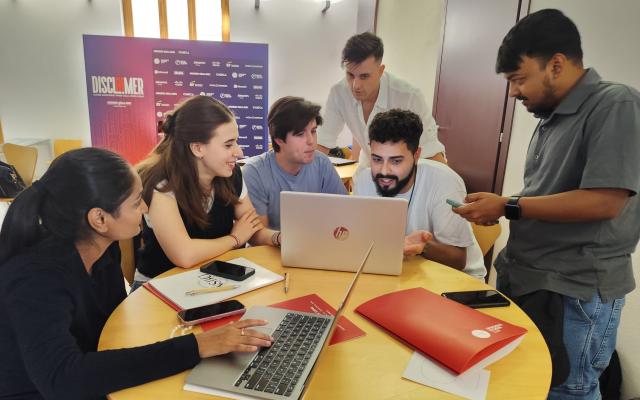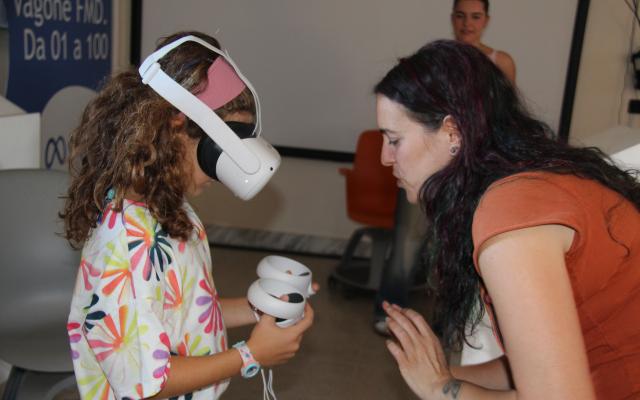This is our ninth weekly instalment of interviews with teachers in Project “Our School” who we have described as i-Teachers, inclusion teachers, who work day in and day out to make sure that no one is left behind [see news: Our School].
Today, a short video and an interview by Ilaria Gaudiello will introduce us to Rosalba Monaco, a primary school teacher with experience directing an educational centre.

Rosalba Monaco, who is a teacher at the “Convitto Nazionale di Napoli Vittorio Emanuele II” Primary School, has a degree in pedagogy and behavioural psychology. Education and the development of educational and didactic projects are central to her mission to orient teaching towards an awareness in innovation. The school plays an important role in cultivating and promoting the talent of students, who need to experience their education serenely and enthusiastically, beginning their journey as active citizens.
Rosalba, your career has seen you committed both as a teacher and as director of an educational centre. Based on this double perspective, what do you believe are the three priorities for teachers who are currently completing their professional training, also in consideration of the complicated current context of schooling?
The training projects for teachers, educators and pedagogists that I have had the opportunity to conduct in these years have helped me to understand how important it was to gain experience in different, albeit complementary, jobs to gain a critical, and yet objective, point of view that supersedes degrees and knowledge of school programmes. In this sense, the introduction of an innovative version of civic education, thanks to Bill N. 92/2017 and the recent guidelines, is fundamental. Schools must acquire a greater awareness of their value to the educational community and the new civic education curriculum is a bridge towards interdisciplinarity: active citizenship, intercultural matters, digital identity, service learning and financial education concern every subject. It’s knowledge that promotes life skills that are useful in any complex situation.
This year your professional nature and protective bent met with the Fondazione Mondo Digitale. You answered the call for teachers and are collaborating on a curricular innovation project on learning styles in primary school. How are digital tools helpful in this?
One of the most serious and significant consequences of the pandemic has been the complete upheaval of space-time and the immediate reorganisation of a new virtual educational environment and a new concept of flipped time that cemented e-learning initiatives that were previously merely complementary and episodic compared to what we refer to as traditional didactics. Thanks to digital tools, schools have become an open and dynamic learning environment – and not just a pre-established physical locus – in which didactic proposals can be motivational if presented innovatively. Digital tools are extremely useful to help teachers to custom tailor lessons with multiple learning channels, particularly the visual, auditive and kinaesthetic. For example, storytelling, the creation of a cartoon or an escape room can become very attractive ways of developing a lesson in Italian or history, allowing students to apply grammar rules, vocabulary, learn to prepare a written or oral speech, ordering characters, dates and events, in a significant, besides creative, manner.
“Our School” opens up novel possibilities in terms of collaboration between teachers throughout Italy to facilitate systemic innovation in education by exploiting the complementary profiles of teachers. What conclusions do you draw from this initial experience? What will your next project be?
I ran into the Fondazione Mondo Digitale by chance and was involved in a very stimulating work group with teachers who daily brought their polyhedric experience to school. I dream of a school in which the human resources, teachers, are also professionals who have worked in a wide range of environments and who can transmit motivation, enthusiasm and teach with empathy. This, I believe, is true innovation. There is no need to completely overhaul curricula and break with tradition. What we need is a new way of proposing programmes that is closer to a generation of students who were born in a digital world and who need an authoritative guide to decodify this fascinating but insidious new world. I would like to propose a project to reform school curricula not in terms of content, but in terms of recognition of the value of an educational community. Schools must step beyond their boundaries and meet students, helping them to give a meaning to their studies and orient them to grow, both personally and professionally, to be global and digital citizens. This aperture to change must become a lifestyle, a conscientious decision, a way of accepting uncertainty by finding a new equilibrium. In a changing world, education must be transformative, give meaning to experience, interpret it. When this interpretation drives us towards a decision-making process, towards change, then it truly becomes learning. The objective is to become people who can think autonomously and responsibly.



